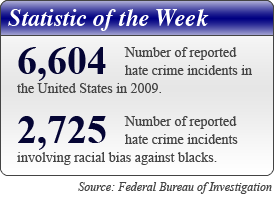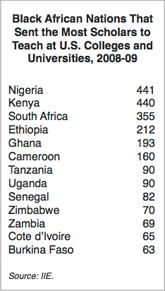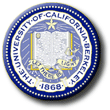The Huge Racial Gap in College Completion Rates
 A new report from the U.S. Department of Education shows a large and persisting racial gap in college graduation rates. The study tracked students who entered college in the fall of 2003. Of those students who enrolled at two-year community colleges in 2003, only 10.3 percent of blacks attained an associate’s degree by 2009. Another 6.2 percent of black students had earned a bachelor’s degree within six years. For whites, nearly 30 percent of students entering two-year colleges in 2003 had earned either an associate’s or bachelor’s degree by 2009. A new report from the U.S. Department of Education shows a large and persisting racial gap in college graduation rates. The study tracked students who entered college in the fall of 2003. Of those students who enrolled at two-year community colleges in 2003, only 10.3 percent of blacks attained an associate’s degree by 2009. Another 6.2 percent of black students had earned a bachelor’s degree within six years. For whites, nearly 30 percent of students entering two-year colleges in 2003 had earned either an associate’s or bachelor’s degree by 2009.
For those students entering a four-year college or university in 2003, 40.5 percent of black students earned a bachelor’s degree from any institution over the next six years. For whites, the figure was 62.6 percent.

WAKE FOREST UNIVERSITY

Faculty Opportunities, Baptist Medical Center
Wake Forest University Baptist Medical Center in Winston-Salem, North Carolina, is recruiting clinicians and scientists to join us in our Mission to Care, Mission to Cure. The Medical Center is home to more than 11,000 employees, which includes over 950 medical and science faculty members and 540 adjunct and clinical faculty in the community, making the medical center the largest employer in Forsyth County. The primary service area of the Medical Center is a 26-county region in northwestern North Carolina and southwestern Virginia and provides a continuum of care that includes primary care centers, outpatient rehabilitation, dialysis centers and home health care. The Medical Center continues to be ranked as one of “America’s Best Hospitals” by U.S. NewWorld Report and ranks in the top third among American medical schools in total funding from the National Institutes of Health.
Please visit http://www.wfubmc.edu/HR/Faculty/Physician-and-Faculty-Careers.htm for our current opportunities.
Wake Forest University Baptist Medical Center is an affirmative action and equal opportunity employer.

Black Student Acceptance Rates at Top-Ranked Liberal Arts Colleges
Last week JBHE reported that many of the nation’s leading research universities continue to be reluctant to disclose data on their black student acceptance rates. But the results of the 2010 JBHE survey of incoming black students show that the top-ranked liberal arts colleges are more forthcoming with information on the subject. In fact, Williams College in Massachusetts was the only leading liberal arts college in the JBHE annual survey that declined to divulge its black student acceptance rate.
 This year’s data shows that at 15 of the 27 schools supplying data, the black student acceptance rate was higher than the rate for all students. In some cases the discrepancy was quite large. For example, at Amherst College, Pomona College, Swarthmore College, Claremont McKenna College, Bowdoin College, and Middlebury College, the black acceptance rate was about double the rate for all students who applied. At Middlebury more than 41 percent of black applicants were accepted for admission. Only 19.2 percent of all applicants were granted admission. This year’s data shows that at 15 of the 27 schools supplying data, the black student acceptance rate was higher than the rate for all students. In some cases the discrepancy was quite large. For example, at Amherst College, Pomona College, Swarthmore College, Claremont McKenna College, Bowdoin College, and Middlebury College, the black acceptance rate was about double the rate for all students who applied. At Middlebury more than 41 percent of black applicants were accepted for admission. Only 19.2 percent of all applicants were granted admission.
On the other hand, black students who applied to Bryn Mawr College, Smith College, Lafayette College, and Bucknell University were significantly less likely to be admitted than applicants generally.
Two African Americans Win Marshall Scholarships
 In 1953 the Marshall Scholarships program was established by an act of the British Parliament. Funded by the British government, the program is a national gesture of thanks to the American people for aid received under the Marshall Plan, the U.S.-financed program that led to the reconstruction of Europe after World War II. The scholarships provide funds for two years of study at a British university, travel, living expenses, and a book allowance. Applicants must earn a degree at an American college or university with a minimum of a 3.7 grade point average. In 1953 the Marshall Scholarships program was established by an act of the British Parliament. Funded by the British government, the program is a national gesture of thanks to the American people for aid received under the Marshall Plan, the U.S.-financed program that led to the reconstruction of Europe after World War II. The scholarships provide funds for two years of study at a British university, travel, living expenses, and a book allowance. Applicants must earn a degree at an American college or university with a minimum of a 3.7 grade point average.
Up to 40 Marshall scholarships can be given out each year. This winter the Marshall Foundation selected 31 winners. While there is no official data on race, it appears from JBHE’s research that two of the new Marshall scholars are African Americans.
 Ariel Eckblad was the valedictorian of the Class of 2010 at Spelman College in Atlanta. The California native majored in political science and comparative women’s studies at Spelman. She is currently a Fulbright scholar, conducting research in India on women in politics. Before winning the Marshall scholarship, she had planned to enroll at Harvard Law School. Ariel Eckblad was the valedictorian of the Class of 2010 at Spelman College in Atlanta. The California native majored in political science and comparative women’s studies at Spelman. She is currently a Fulbright scholar, conducting research in India on women in politics. Before winning the Marshall scholarship, she had planned to enroll at Harvard Law School.
 Kristen Hall will graduate from the University of Pennsylvania this spring with a bachelor’s degree in economics from the Wharton School and a bachelor’s degree in international studies with a minor in mathematics from the School of Arts and Sciences. She will go to Oxford University next fall to study financial and developmental economics. Kristen Hall will graduate from the University of Pennsylvania this spring with a bachelor’s degree in economics from the Wharton School and a bachelor’s degree in international studies with a minor in mathematics from the School of Arts and Sciences. She will go to Oxford University next fall to study financial and developmental economics.

DUKE UNIVERSITY

HBCU Faculty Fellowships 2011-12, John Hope Franklin Humanities Institute / A.W. Mellon Foundation
Application Deadline: January 21, 2011
Duke University’s Franklin Humanities Institute announces a fellowship program for faculty in the humanities at Historically Black Colleges and Universities. The program is made possible by a grant from the A.W. Mellon Foundation.
Fellowships support a year of research with opportunities for interaction and collaboration with the scholarly community at Duke and neighboring UNC-Chapel Hill, NC Central University, NC State University, and the National Humanities Center.
Two fellowships will be offered in 2010-11. Fellows will be provided with a stipend, access to health insurance, an office, library access, and research/travel funds. Stipends for Asst. & Assoc. Professors are $40,000; full Professors receive $60,000.
For complete program and application information, visit fhi.duke.edu
Prospective applicants are encouraged to contact the Franklin Humanities Institute: FHI@duke.edu or call (919) 668-1902.

The Higher Education of the Nation’s Newest Black Appellate Court Judge
 President Obama recently nominated Bernice Bouie Donald for a seat on the U.S. Court of Appeals for the Sixth Circuit, which is based in Cincinnati. In 1995 she was appointed by President Clinton to the federal bench for the western district of Tennessee. She is the first African-American woman to serve on a federal district court in Tennessee. Her appointment to the appeals bench must be approved by the U.S. Senate. President Obama recently nominated Bernice Bouie Donald for a seat on the U.S. Court of Appeals for the Sixth Circuit, which is based in Cincinnati. In 1995 she was appointed by President Clinton to the federal bench for the western district of Tennessee. She is the first African-American woman to serve on a federal district court in Tennessee. Her appointment to the appeals bench must be approved by the U.S. Senate.
Judge Donald is a native of Desoto County, Mississippi, where she was the daughter of sharecroppers who had 10 children. She is a graduate of the University of Memphis and the Cecil C. Humphreys School of Law at the University of Memphis.
After law school she worked for Memphis Area Legal Services and then for the public defenders office of Shelby County. In 1982 she was elected to the Shelby County court. She was the first black female judge in the history of Tennessee. In 1988 she was appointed a federal bankruptcy judge, the first black woman to serve in that position.
Yale University Program Seeks to Improve Healthcare in Ethiopia
 The Global Health Leadership Institute at Yale University has admitted 18 new students from Ethiopia into its two-year degree program in hospital management. The program, conducted in cooperation with Jimma University and the Ethiopian Ministry of Health, will train the students to improve efficiency and quality of care at Ethiopian hospitals. The Global Health Leadership Institute at Yale University has admitted 18 new students from Ethiopia into its two-year degree program in hospital management. The program, conducted in cooperation with Jimma University and the Ethiopian Ministry of Health, will train the students to improve efficiency and quality of care at Ethiopian hospitals.
The previous 23 students who have completed the program and who are now hospital administrators in Ethiopia report that the average length of stay in their hospitals has dropped from 10 days to seven days. And the post-surgical infection rate has decreased from 10 percent to 2 percent. This demonstrates substantial improvements in quality of care.
The program is funded with the support of the U.S. Centers for Disease Control and Prevention.

COLLEGE OF DUPAGE

Full-Time Faculty, Fall 2011
When you teach at COLLEGE OF DUPAGE, you can provide direction for students' lives as you direct your own successful career. We strive every day to find new and better ways to prepare students to meet every challenge. As the second largest higher education institution in Illinois and the fifth largest single-campus community college in the nation, you can develop the teaching career you've always wanted.
Traditional Classroom Instruction Opportunities
- ANTHROPOLOGY
- CRIMINAL JUSTICE
- CULINARY & HOSPITALITY MANAGEMENT
- DEVELOPMENTAL MATHEMATICS
- DIAGNOSTIC MEDICAL IMAGING SONOGRAPHY
- ENGINEERING
- HISTORY
- FRENCH/ITALIAN
- SPEECH
The student population at the college is diverse in ethnicity, gender, native language, age and background. College of DuPage is an AA/EO employer and strongly encourages applications from candidates who would enhance the diversity of its faculty. College of DuPage offers a generous benefits package with a variety of employee options.
To apply, please visit our website:
https://www.cod.edu/hrjobs/Loginpage.aspx
To apply, please visit our website:
https://www.cod.edu/hrjobs/Loginpage.aspx

In Memoriam
Glenn T. Johnson (1917-2010)
Glenn T. Johnson, a former trustee of the John Marshall Law School and the second African American to serve on the Illinois Appellate Court, died late last month at his home in Hyde Park, Illinois. He was 93 years old.
Johnson was a native of Washington, Arkansas. He received his bachelor’s degree at Wilberforce University in Ohio. After serving in the Army during World War II, he went to John Marshall Law School in Chicago, graduating in 1949.
He began his legal career as an assistant attorney general for the state of Illinois. He was elected judge of the circuit court in 1966 and served on the Illinois Appellate Court from 1973 to his retirement in 1994.
The Black Law School Students Association at John Marshall Law School is named in Johnson’s honor.

Honors and Awards
 • The engineering building at Alabama A&M University was named in honor of Arthur J. Bond. Dr. Bond was one of the founders of the National Society of Black Engineers and served as dean of the School of Engineering and Technology at the university. • The engineering building at Alabama A&M University was named in honor of Arthur J. Bond. Dr. Bond was one of the founders of the National Society of Black Engineers and served as dean of the School of Engineering and Technology at the university.
Dr. Bond holds bachelor’s, master’s, and Ph.D. degrees from Purdue University.
 • Andrew J. Goudy, professor and chair of the department of chemistry at Delaware State University, was named a 2010 Delaware Black Achiever by the YMCA of Delaware. • Andrew J. Goudy, professor and chair of the department of chemistry at Delaware State University, was named a 2010 Delaware Black Achiever by the YMCA of Delaware.
Dr. Goudy holds bachelor’s and master’s degrees from Indiana University of Pennsylvania and a Ph.D. in physical chemistry from the University of Pittsburgh.
Grants and Gifts
• The Alliance for Equity in Higher Education, based in Washington, D.C., received a $3 million grant from the Wal-Mart Foundation to support programs aimed at improving the academic performance of first-generation and minority college students.
 • The School of Nursing at North Carolina A&T State University in Greensboro received a $70,000 grant from the National Institutes of Health for a research project on the sexual identity development of African-American males ages 18 to 25 at the university. • The School of Nursing at North Carolina A&T State University in Greensboro received a $70,000 grant from the National Institutes of Health for a research project on the sexual identity development of African-American males ages 18 to 25 at the university.
The research will be under the direction of Schenita Davis Randolph, a clinical assistant professor at the nursing school.
• Lincoln University, the historically black educational institution in Jefferson City, Missouri, received a $1.89 million award from the U.S. Army Contracting Command in Aberdeen Proving Ground, Maryland. The funds will be used to develop signal processing, detection, and data fusion algorithms for a program to defend personnel in multi-threat situations.
• Alabama A&M University and Tuskegee University, two historically black educational institutions in Alabama, will share a three-year, $300,000 grant from the National Institute of Food and Agriculture for a program to develop agricultural academic programs at EARTH University in Costa Rica.
|

Black African Scholars Teaching at U.S. Colleges and Universities: Nigeria and Kenya Send the Largest Contingents
 According to the Institute of International Education, during the 2008-09 academic year there were 113,494 foreign scholars teaching at colleges and universities throughout the United States. Of these, 3,800, or 3.3 percent, were from the African continent. According to the Institute of International Education, during the 2008-09 academic year there were 113,494 foreign scholars teaching at colleges and universities throughout the United States. Of these, 3,800, or 3.3 percent, were from the African continent.
About 30 percent of these African scholars were from the Arab nations of North Africa, mostly from Egypt. But there were about 2,700 academics from black African nations teaching in the U.S.
There were 441 black academics from Nigeria teaching at U.S. colleges and universities in the 2008-09 academic year. This was the most from any black African nation. Kenya came in a very close second with 440 scholars teaching in the United States.
Other countries sending more than 100 scholars to teach at U.S. institutions of higher learning were Ethiopia, Cameroon, Ghana, and South Africa.


WASHBURN UNIVERSITY

Tenure-Track Assistant Professor, Reading and Literacy Development
WASHBURN UNIVERSITY in Topeka, KS invites applications for a full-time tenure track assistant professor position in the Education Department in Reading and Literacy Development beginning August 2011.
Qualifications include: 1). Earned Doctorate with emphasis in Reading and Literacy Development, ABD considered. 2). ABD candidate appointed as non-tenure-track Lecturer until Ph.D. is completed. 3). Demonstrated competency in one or more of the following areas: emergent literacy; reading assessment; general elementary teaching, instruction and intervention strategies; reading in the content areas; or, teaching reading to second language learners.
Responsibilities include: Twelve hour teaching load per semester; teaching undergraduate and graduate courses in reading and literacy development.
For complete qualifications, responsibilities, and application information see: http://www.washburn.edu/admin/vpaa/academicpositions.html
We also invite applications for tenure-track and non tenure-track positions in the following areas: Art, Biology, Criminal Justice, English, History, Mabee Library, Mathematics, Music, Psychology, Sociology. See website above for information. Washburn University is an EOE. http://www.washburn.edu

Black Enrollments Are Down at Berkeley
 The University of California at Berkeley has issued final enrollment figures for the fall semester. There are 1,203 black students on campus this year, compared to 1,253 a year ago. There are 49 fewer black undergraduate students, but black graduate students are down by only one. Blacks make up 3.4 percent of the 35,838 students on campus. The University of California at Berkeley has issued final enrollment figures for the fall semester. There are 1,203 black students on campus this year, compared to 1,253 a year ago. There are 49 fewer black undergraduate students, but black graduate students are down by only one. Blacks make up 3.4 percent of the 35,838 students on campus.
There were 84 new black students who transferred to Berkeley this fall, the same number as a year ago. Black freshman enrollments are down by 3.9 percent. They make up 3 percent of all new freshman enrollments.
Commission Report Concludes That Black Students in the Sciences at Predominantly White Schools Face an “Academic Mismatch”
 In a new report, the United States Commission on Civil Rights finds that African-American students at the nation’s historically black colleges and universities are more likely than black students at other educational institutions to succeed in science, technology, engineering, and mathematics (STEM) fields. The report found that black students at HBCUs reported higher levels of academic involvement and greater participation in faculty research projects than black students at predominantly white universities. In a new report, the United States Commission on Civil Rights finds that African-American students at the nation’s historically black colleges and universities are more likely than black students at other educational institutions to succeed in science, technology, engineering, and mathematics (STEM) fields. The report found that black students at HBCUs reported higher levels of academic involvement and greater participation in faculty research projects than black students at predominantly white universities.
The commission, which has many members with conservative political leanings, stated that racially preferential admissions policies at selective predominantly white universities created an “academic mismatch” problem where black students could not effectively compete with their white peers in science-related studies.
African-American Scores on Literacy Assessment Tests Are Below Those of Students in Many Third World Nations
A new report from the U.S. Department of Education shows that black high school students in the United States trail youth in many Third World countries in measures of functional literacy. American students of all races score well in world rankings, but still trail students in nations such as Korea, Canada, Japan, Australia, and Switzerland. But African-American student scores on literacy tests are significantly below those of American students as a whole and are lower than the scores of students in such nations as Turkey, Chile, Greece, Russia, and Slovenia.

WAYNE STATE UNIVERSITY

Assistant Professor, Composition Theory and Pedagogy (Assessment)
The Department of English at Wayne State University invites applications for a tenure-track assistant professorship in Composition Theory and Pedagogy with a specialization in assessment. A PhD in English or Composition/ Rhetoric is required. The candidate will join a PhD granting graduate program and contribute to our undergraduate program’s ongoing development in curriculum, pedagogy, teacher-training, and assessment in an urban research institution. The Composition Program is committed to scholarship and teaching that is both theoretically engaged and pragmatically grounded.
To submit an application, applicants should go to http://jobs.wayne.edu (posting #037504) and upload the following: letter of application, CV, 2 page teaching statement, and one 20-25 page writing sample. Applicants should also arrange to have 3 letters of recommendation sent to Ellen Barton, Chair, Department of English, Wayne State University, 5057 Woodward, Detroit, MI 48202. All materials are due by January 17, 2011, and preliminary interviews will take place via Skype the week of January 24, 2011.
Wayne State University is a premier institution of higher education offering more than 350 academic programs through 14 schools and colleges to more than 31,000 students in metropolitan Detroit. Wayne State University is an equal opportunity, affirmative action employer.

New Scholarship Program for Students With Disabilities at HBCUs
 The National Association for Equal Opportunity in Higher Education has announced the establishment of its Inclusion Scholars Program. Funded by a grant from the AT&T Foundation, the program aims to help recruit, retain, and graduate students with disabilities at historically black and predominantly black colleges and universities. Initially the effort will be focused at Bethune-Cookman University, Morgan State University, and Tennessee State University. The National Association for Equal Opportunity in Higher Education has announced the establishment of its Inclusion Scholars Program. Funded by a grant from the AT&T Foundation, the program aims to help recruit, retain, and graduate students with disabilities at historically black and predominantly black colleges and universities. Initially the effort will be focused at Bethune-Cookman University, Morgan State University, and Tennessee State University.
Business Students at Historically Black Florida A&M Win National Competition
Students at the School of Business and Industry at historically black Florida A&M University took first-place honors at the recent National Team Selling Competition held at Indiana University. The FAMU team competed against students from 15 other universities. The students were given information about a fictional company that sold chocolate bars. The students had to produce a plan to market the company’s product, taking into account costs, inventory, distribution, etc.
 Roscoe Hightower Jr., associate professor of marketing at the FAMU business school, was the faculty adviser to the student team. He reports that his team was the only one in the competition to produce a complete solution to the fictional company’s business obstacles. Dr. Hightower holds bachelor’s and master’s degrees from FAMU and a Ph.D. in marketing from Florida State University. Roscoe Hightower Jr., associate professor of marketing at the FAMU business school, was the faculty adviser to the student team. He reports that his team was the only one in the competition to produce a complete solution to the fictional company’s business obstacles. Dr. Hightower holds bachelor’s and master’s degrees from FAMU and a Ph.D. in marketing from Florida State University.
African-American President of Martin University Steps Down
 Algeania Freeman has stepped down as president of Martin University in Indianapolis. The university was founded in 1977 by Boniface Hardin, a Catholic priest, to educate nontraditional students. The average age of a Martin University student is 40. About 91 percent of the university’s 1,200 students are black. Algeania Freeman has stepped down as president of Martin University in Indianapolis. The university was founded in 1977 by Boniface Hardin, a Catholic priest, to educate nontraditional students. The average age of a Martin University student is 40. About 91 percent of the university’s 1,200 students are black.
Freeman, who holds a Ph.D. in communications from Ohio State University, previously served as president of historically black Livingstone College in Salisbury, North Carolina. Dr. Freeman’s tenure at Martin University was controversial due to the firing of many faculty members, but she had managed to put the educational institution on more solid financial ground.
The board of trustees named Charlotte Westerhaus acting president. Upon accepting the appointment, Westerhaus said she would like the position on a permanent basis.
 Westerhaus was vice president for diversity and inclusion for the National Collegiate Athletic Association until her position was eliminated during a management reshuffle. Previously, she served as assistant to the president and director of equal opportunity and diversity at the University of Iowa. From 1998 to 2001, Westerhaus was the director of affirmative action programs at Purdue University. She has also held administrative posts at the University of Wisconsin, Pomona College, and the University of California at Davis. Westerhaus was vice president for diversity and inclusion for the National Collegiate Athletic Association until her position was eliminated during a management reshuffle. Previously, she served as assistant to the president and director of equal opportunity and diversity at the University of Iowa. From 1998 to 2001, Westerhaus was the director of affirmative action programs at Purdue University. She has also held administrative posts at the University of Wisconsin, Pomona College, and the University of California at Davis.
Westerhaus holds bachelor’s and master’s degrees from Ohio University in Athens. She is also a graduate of the Maurer School of Law at Indiana University.
Appointments, Promotions, and Resignations
 • Uchenna Elike, professor of economics and finance at Alabama A&M University, was appointed to serve on the College Board’s National Advanced Placement Microeconomics Development Committee. • Uchenna Elike, professor of economics and finance at Alabama A&M University, was appointed to serve on the College Board’s National Advanced Placement Microeconomics Development Committee.
Dr. Elike holds a Ph.D. in economics from the University of Alabama.
• Shelby F. Lewis, professor emerita at Clark Atlanta University and executive director of the Lewis Foundation, was appointed by President Obama to the J. William Fulbright Foreign Scholarship Board.
Dr. Lewis is a graduate of Southern University. She holds a master’s degree from the University of Massachusetts and a Ph.D. in political science from the University of New Orleans.
 • Karen A. Jones was appointed executive director for equity and access in the department of human resources at Virginia Tech. She was director of corporate diversity at Excellus Blue Cross Blue Shield in Rochester, New York. • Karen A. Jones was appointed executive director for equity and access in the department of human resources at Virginia Tech. She was director of corporate diversity at Excellus Blue Cross Blue Shield in Rochester, New York.
Dr. Jones holds a bachelor’s degree and a Ph.D. from the State University of New York at Buffalo. She also earned a master’s degree from the State University of New York College of Brockport.
 • Diane Bowles was promoted to vice president for government sponsored programs and applied research at Johnson C. Smith University in Charlotte, North Carolina. She has been serving as the university’s Title III administrator and director of the Smith Institute for Applied Research. • Diane Bowles was promoted to vice president for government sponsored programs and applied research at Johnson C. Smith University in Charlotte, North Carolina. She has been serving as the university’s Title III administrator and director of the Smith Institute for Applied Research.
 • Antionette Marbray was named interim vice president and general counsel at Bowie State University in Maryland. She has been serving as interim vice president for legal affairs at the university. • Antionette Marbray was named interim vice president and general counsel at Bowie State University in Maryland. She has been serving as interim vice president for legal affairs at the university.
Marbray is a graduate of the University of South Florida and the Duke University School of Law. She also holds a master’s degree in educational psychology from the University of Florida.
 • Janet Hayes Southerland is the new dean of the School of Dentistry at Meharry Medical College in Nashville, Tennessee. She was chair of the department of hospital dentistry at the University of North Carolina School of Dentistry and Hospitals and Clinics. • Janet Hayes Southerland is the new dean of the School of Dentistry at Meharry Medical College in Nashville, Tennessee. She was chair of the department of hospital dentistry at the University of North Carolina School of Dentistry and Hospitals and Clinics.
Dr. Southerland holds dental and Ph.D. degrees from the University of North Carolina at Chapel Hill.
|
 .
.